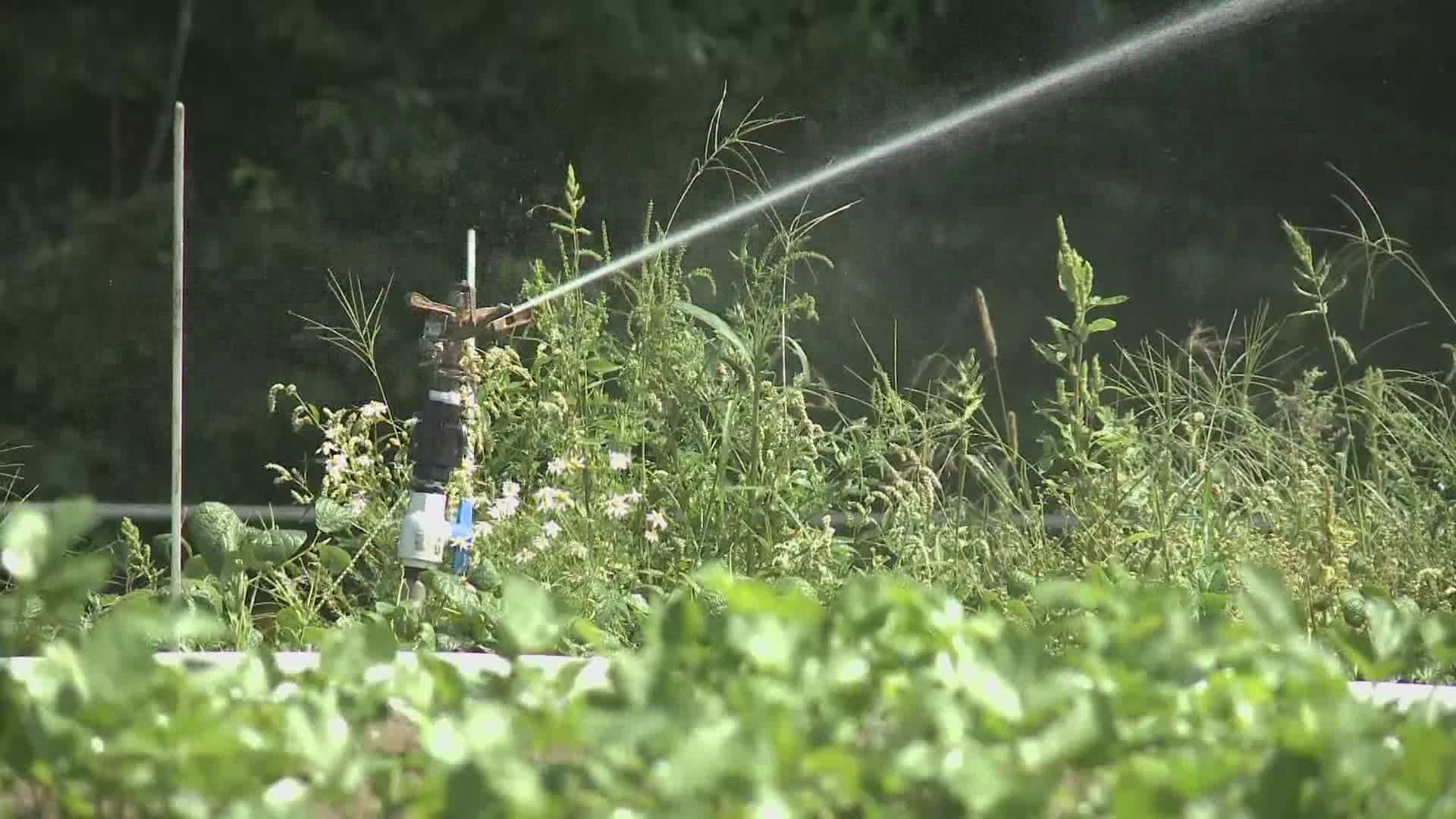FREEPORT, Maine — At Laughingstock Farm in Freeport, it is dry. On the road to the fields, puffs of dust pop up as you walk.
"It's August,” says farm co-owner Ralph Turner, “and in August, almost every year there’s some degree of drought.”
But this year, much of Maine is experiencing a moderate drought with some areas listed as “severe drought."
So for many farms, including Laughingstock, they’re not waiting for rain. irrigation is the key. The organic farm raises 12 acres of vegetables, with 200 varieties, says Ralph and Lisa Turner. They say other smaller farms are also watering if they can.
“You’re not going to get something if you don’t irrigate. With vegetables, it's critical so a lot of people take care of that,” Lisa Turner said.
But they also say irrigation comes with a cost and a lot of work.
“When our crew is eight people, to take three and dedicate them full time to just irrigating, that’s a significant cost.”
This is the second long, dry spell of this growing season. The first was in late May and June and lasted for weeks. Ralph Turner says irrigation is was essential for that drought period as well as this one. But some larger farms aren’t able to do irrigate, and some of them are having a hard time, according to Julie Ann Smith of the Maine Farm Bureau. Blueberry growers in midcoast and Downeast Maine, she says, are hardest hit. Smith says growers are worried their incomes will take a big hit.
“They are concerned about shortening their growing season, that without significant rain the season won’t last half as long as last year,” said Smith.
She also said there is concern about hay crops, and even among farmers who wish irrigation, questions whether the drought could lower groundwater levels to a point their water sources might be affected.
The Turners, meanwhile, say irrigation is a huge help but doesn’t replace the need for real rain.
“Because really, all the irrigation in the world doesn’t make up for a good rainstorm,” Lisa Turner said.
Then Ralph added, “But it keeps us going.”

